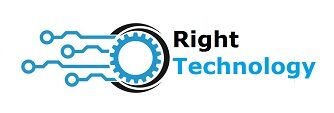Things Every Employer Must Know About Computer Monitoring Software
In today’s digital age, computer monitoring software has become an essential tool for many employers to ensure productivity, security, and compliance within their organizations. With the prevalence of remote work and the increasing dependence on technology, understanding the implications of implementing such software is crucial. Here are three key things every employer must grasp about computer monitoring software:
3 Things Every Employer Must Know About Computer Monitoring Software
Balancing Productivity and Privacy
Computer monitoring software offers employers valuable insights into their employees’ work habits, helping to enhance productivity and identify areas for improvement. By tracking computer activity, employers can gain valuable data on how employees utilize their time, which applications they use the most, and where potential bottlenecks exist.
However, it is essential to strike a balance between monitoring productivity and respecting employees’ privacy rights. Monitoring should be transparent, and employees should be informed about the types of data being collected and the purposes behind it. Employers must establish clear policies and guidelines regarding monitoring practices, ensuring that they comply with relevant labor laws and regulations.
Transparency and open communication are key to maintaining trust between employers and employees. Employers should emphasize that monitoring is not intended to invade employees’ personal lives but to optimize work processes and protect sensitive company information. Respecting employees’ privacy fosters a positive work environment and encourages a sense of trust and loyalty among the workforce.
Data Security and Confidentiality
While computer monitoring software can help safeguard company data and detect security breaches, it also raises concerns about data security and confidentiality. Employers must ensure that the software they use complies with data protection regulations and follows best practices for data encryption and storage.
It is essential to limit access to monitoring data to authorized personnel only, reducing the risk of data leaks or unauthorized use. Regular security audits and updates to the monitoring software can help mitigate potential vulnerabilities and safeguard sensitive information.
Additionally, employers should be cautious about the type of data collected through monitoring. Focus on gathering information relevant to work-related activities rather than personal data unrelated to job performance. This approach not only respects employees’ privacy but also reduces the risk of data misuse.
Legal Compliance and Ethical Considerations
Employers must be well-versed in the legal implications of using computer monitoring software. Depending on the jurisdiction, there may be specific laws about monitoring computer activities, such as the Electronic Communications Privacy Act (ECPA) in the United States or the General Data Protection Regulation (GDPR) in the European Union.
Compliance with these regulations is critical to avoid legal liabilities and potential lawsuits. Employers should consult with legal experts to ensure their monitoring practices align with local labor laws and data protection regulations. Additionally, they must educate employees about their rights and the extent of monitoring that occurs within the organization.
Ethical considerations also play a significant role in implementing computer monitoring software. Striking a balance between the need for monitoring and employees’ rights to privacy requires thoughtful decision-making. Regularly assess the effectiveness and necessity of monitoring practices and adjust them accordingly. The goal is to create a work environment that encourages productivity, while also fostering a culture of trust and respect.
Conclusion
Computer monitoring software can be a powerful tool for employers to enhance productivity, protect data, and maintain security within their organizations. Open communication with employees about monitoring practices and its purpose can help build trust and alleviate concerns. Employers must prioritize data security and confidentiality, employing best practices to protect sensitive information.


Leave a Reply
You must be logged in to post a comment.